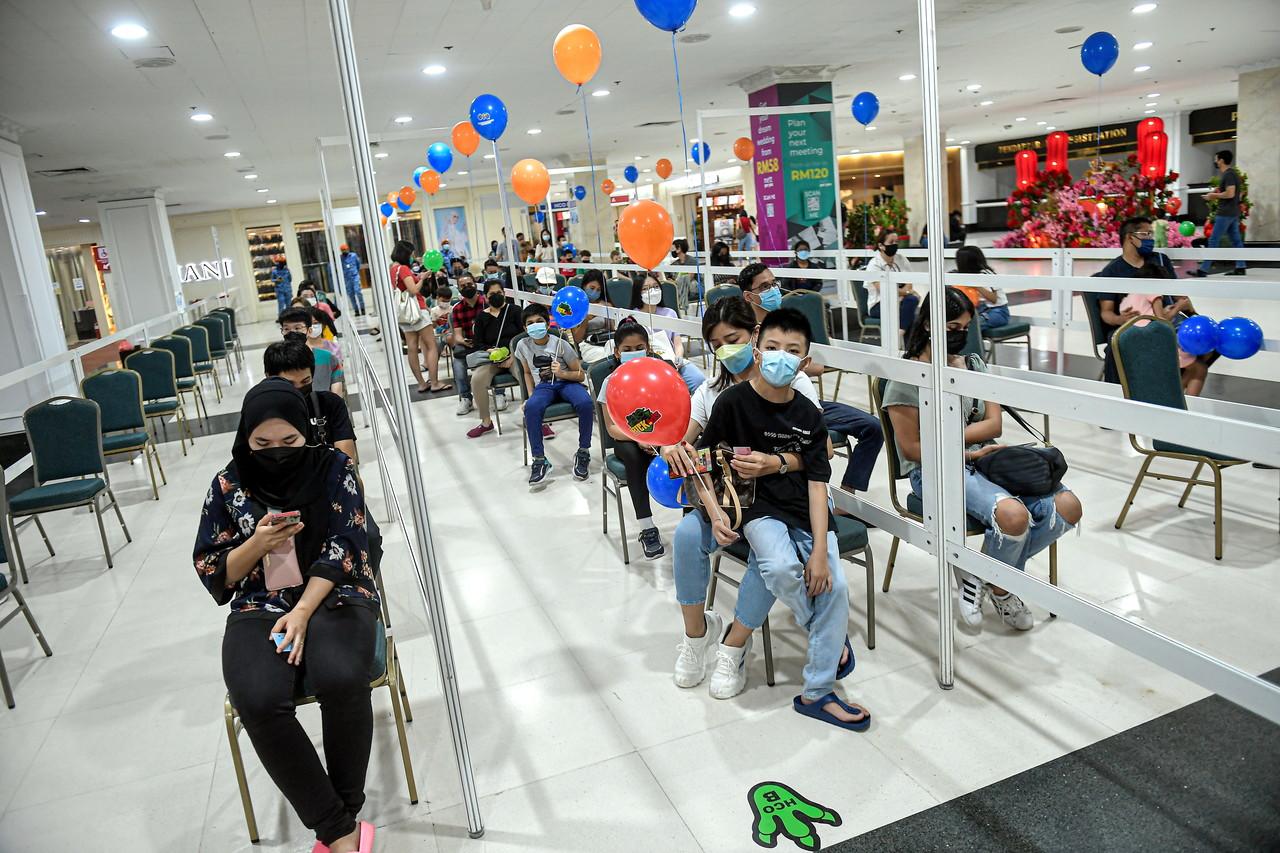Better the devil you know? Sarawak parents torn as jabs roll out for kids
Concerns about vaccination grapple with worries over Covid-19 and the ultra contagious Omicron variant.
Just In
Excitement buzzes in the air at a school in Kuching as children eagerly greet each other after two years apart due to Covid disruptions.
Back at home and in the office, parents too are heaving a sigh of relief – but gladness is tempered with concern as infections continue to spread in the state and throughout the rest of the country.
There are also those who worry that spikes in case numbers will cause schools to shut down again, throwing into fresh disarray the daily schedules of parents and children alike.
Dayang Ida, a mother of three in Semariang, is one of many trying to balance keeping her children safe and making sure that they can continue receiving an education.
While keeping them at home would be her best chance at achieving the former, she also acknowledges that this comes at a cost.
After nearly two years of attending classes on-screen, her eight-year-old daughter continues to struggle with basic reading and spelling.
Now that schools have reopened, she is determined to do what she can to keep her children there, and to keep them safe from the virus.
Three days a week, every week, she makes her children test themselves for Covid-19 with home-use saliva kits. This amounts to hundreds of ringgit each month.
“But this is the only way to deal with the volatility of the situation,” she said. “Like it or not, I must do this for my children.”
In Sarawak, daily cases have plummeted since last year, but the reopening of schools was accompanied by a sharp rise in education-related clusters.
Earlier this week, the government began rolling out the National Covid-19 Immunisation Programme for Kids or PICKids, under which children as young as five years old are eligible for vaccination.
Health Minister Khairy Jamaluddin said on Thursday that 15% of those in the target group had registered for the jab.
In Sarawak itself, 91.8% of adults are fully vaccinated and 83% have received a booster shot. Some 88.4% of teenagers are also fully jabbed.
But Sarawak Deputy Chief Minister Douglas Uggah Embas said an estimated 15% of 40,000 parents in Sarawak disagreed with having their children vaccinated, mostly due to concerns about possible complications post-jab.
“Some are worried about the safety of the vaccine and want to be given the advantage of choosing the type of vaccine,” he added.
Yet concerns about vaccination are matched by worries over unvaccinated children contracting Covid-19.
Dr Ong Eng-Joe, a paediatrician at Borneo Medical Centre, said it was crucial for eligible children in the lower age group to be vaccinated against the virus.
“If the children are not vaccinated when eligible, they could be at risk of severe Covid-19,” she told MalaysiaNow.
While adverse events from mRNA vaccines can occur, they do so very rarely, she said, adding that this is thought to be related to the amount of mRNA as well as the interval between dosage.
“The Pfizer vaccine for children aged five to 11 has a lower amount of mRNA – one-third – than the adult formulation, and the number of adverse events is very small,” she said.
“The benefits of vaccination outweigh the risks.”
Back in Kuching, Dayang Ida is still worried, but she also hopes that the rollout of vaccine jabs for children means that schools will never have to close again.
But at the same time, she remains cautious about the future.
“It’s slowly getting better but I don’t think it will ever go back to how it used to be,” she said.
Subscribe to our newsletter
To be updated with all the latest news and analyses daily.
